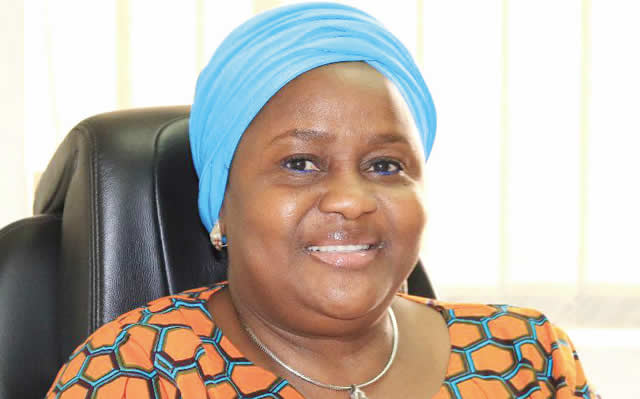
Getting and funding pension accounts early during the active years of workers will help them to continue to enjoy monthly stipends at retirement, NIKE POPOOLA reports
Many workers who lived comfortable lifestyles when they were in active service, unfortunately, became destitute in their vulnerable old age because they could not maintain their former lifestyle in retirement.
Many of them could not save enough money to cater to their future needs before they retired or, they lacked entrepreneurial skills to sustain the enterprises they started in retirement.
Experts have said that having a pension account early will ensure that a retiree continues to earn monthly income just as he was earning when he was a worker
CPS
It is important to understand the Contributory Pension Scheme properly before opening a pension account.
The Contributory Pension Scheme was established in Nigeria under the Pension Reform Act in 2004. The Act was amended in 2014.
It was established to ensure that every employee that worked in either the public or private sector in Nigeria receives his retirement benefits as and when due.
According to the Act, all employees in the public service of the federation, the Federal Capital Territory and the private sector of the economy should be registered with the pension companies called the Pension Fund Administrators.
The workers under the scheme are mandated to contribute eight per cent of their monthly emolument, while employers contribute 10 per cent into the workers’ Retirement Savings Accounts administered by the PFA.
The CPS, which is regulated by the National Pension Commission, was only opened to the formal sector until March 2019 when the Federal Government officially extended it to the informal sector after it launched the Micro Pension Plan.
RSAs
Latest figures obtained from PenCom reveal that workers under the CPS stood at 9,862,129 as of the end of December 2022.
The total funds under the scheme stood at N14.99tn in the period under review.
Two retirement options under the CPS are the Programmed Withdrawal managed by the PFAs, and Life Annuity managed by the life insurance companies.
According to PenCom, retirees under the Programmed Withdrawal have been paid N908.04bn as lumpsum and are getting N14.17bn as monthly pensions.
Since inception of the scheme, retirees under the Life Annuity have been paid N201.43bn and are getting N6.24bn as monthly pensions.
Benefits
The Chief Executive Officer, Pension Fund Operators Association of Nigeria, Oguche Agudah, says it is important to start early contribution into the RSA.
He says, “The way the system is designed, if one starts working at say, 25 years and works for 35 years, retiring at 60 years.
“If the employer and employee have contributed consistently over this period of time, then the funds in that individual’s RSA account would be sufficient to have a decent lump sum with enough funds remaining to earn a decent pension for life.”
According to him, under the CPS, it is what the employee contributes into his RSA plus investment returns that he gets in retirement.
He explains further, “If a worker were to save N20,000 consistently every month for 15 years with an interest rate of 10 per cent per annum compounded for the 15 years, at the end of the period, he would have amassed over N16m.
“This is the power of consistency and compounding which the current system provides, and which should be encouraged.”
The PenOp CEO says it is pertinent to note that the CPS in its current state has in no small way fostered a savings culture in Nigeria.
Prior to the enactment of the Act, he noted, Nigeria did not have large pools of domestic savings.
“Many Nigerians do not have any other form of savings, except through this contributory pension scheme,” he said.
As a nation, he says, it is important to encourage more of these savings because it is probably the only form of savings most Nigerian workers are able to put aside for their retirement years.
According to him, Nigeria’s pension industry has grown over the last 18 years since the Pension Reform Act was initially enacted in 2004.
He says the industry has ensured that the average Nigerian worker is able to retire in peace and dignity.
“The Act brought about the professionalisation of pension fund administration and the growth of the pension industry in Nigeria,” Agudah says.
Planning
According to the Director, Centre for Pension Rights Advocacy, Ivor Takor, there comes a time in a person’s life circle, when he can no longer be fit for active economic activities or earning regular income through work.
“It is a period of rest, for those who have planned for it and a period of poverty and destitution for those who have failed to plan for it,” he says.
He notes that organizations plan for their employees old age by putting in place pension schemes for them.
“Pension is a retirement plan that provides monthly income in retirement,” he explains.
Takor says the CPS, unlike the old Define Benefit Scheme it replaced, has inbuilt safeguards meant to protect the fund from mismanagement and fraudulent practices.
The scheme, he says, is fully funded through monthly contributions, which are put into RSAs owned by employees.
He notes that employers cannot access the funds.
Takor says, “The funds are warehoused by Pension Fund Custodians and managed by Pension Fund Administrators.
“The law established the National Pension Commission, among other objectives, to regulate, supervise and ensure the effective administration of pension matters and retirement benefits in Nigeria.”
He adds that the adage that rest is sweet after labour may after all not hold for employees of most states and Local Governments in the country as many of the lacked pension savings.
He said, “The adage holds sway only for employees who have got their rest planned for them by their employers during the period of their labour.
“Unfortunately for employees of most states and Local Governments, this type of planning is alien to the managers of their states affairs.”
Welfare
The Chairman/Chief Executive Officer, Achor Actuarial Services Limited, Dr Pius Apere, speaks on the need for retirees under the CPS to have adequate retirement income to live decent life at old age.
He says there is an urgent need to bridge the existing gap between the exponential growth in asset under management leading to huge dividend incomes being paid to shareholders of PFAs and the poor economic well-being of the generality of RSA holders and the inadequate retirement income for retirees under the CPS.
As the regulatory capital base (shareholders fund) of the PFAs has been increased to N5bn as of April 2022, he says, there is need to revisit the investment returns and expenses allocation structure between the PFAs and RSA holders in order to ensure that the retirees’ expectations are met.
“In other words, a much higher percentage of the return on investment in pension assets must be allocated to RSA holders to cushion the effect of their retirement benefits being eroded by inflation,” he says.
According to him, the recapitalisation exercise will assist the PFAs and PenCom to meet Nigerian pensioners expectations, particularly by providing adequate retirement income to enable them have sustainable standard of living in retirement.
Regulation
The Director-General, PenCom, Aisha Dahir-Umar, says, despite the overwhelming head-winds in the global economic climate and the country’s challenging macroeconomic environment, the Pension fund assets under management increased by N568.33bn from N14.42tn as of 30 September 2022 to N14.99tn as at 31 December 2022.
“This laudable performance, in the growth of the assets under management, points to the fact that the pension industry will continue to deliver value and benefit to its stakeholders and the nation’s economy,” she says.
During the fourth quarter of 2022, she says, PenCom stepped up its efforts to ensure sustainable investment by pension funds in alternative asset classes and structured infrastructure projects that meet the strict requirements of the Pension fund investments regulation.
She says, “We continued our efforts to ensure further diversification of investments in pension fund portfolio assets. While rising inflation continues to challenge the Nigerian economy, it should be noted that efforts are being made to ensure average annual pension fund returns for RSA and legacy funds exceed headline inflation.”
Prospects
According to Agusto & Co, a credit rating agency and provider of industry research, the Nigerian pension industry has transited from one with predominantly public sector participants running a defined benefit scheme to a mandatory defined contribution system for all government and private sector employees.
It said in a report titled, ‘Limited Investible options: An impediment to a potentially bullish industry’ that, in the last decade, the 628 per cent surge in the size of pension fund assets to N14.27tn as of 30 June 2022, is indicative of the industry’s growth and evolution.
Agusto& Co. attributes this largely to the legislative support provided by the Pension Reform Act 2004 and the amendment in 2014 which effectively redefined retirement planning in Nigeria, and led to a significant boost in the number of enrolees and the size of managed assets in the industry.
It states that, “Robust regulation by the National Pension Commission continues to underpin the industry’s expansion. In April 2022, PenCom announced that all the Pension fund administrators in Nigeria had complied with its increased minimum capital requirement (N5bn from N1bn).
The operations, activities and prosperity of the pension industry are crucially hinged on the direction of PenCom’s regulation, which Agusto & Co. expects to remain robust given the industry’s strategic importance to the Nigerian economy, and the need to more closely align the Nigerian pension scheme with international standards in the near term.





